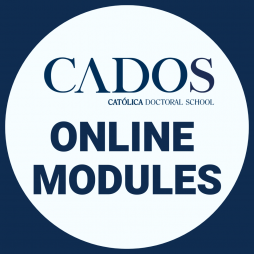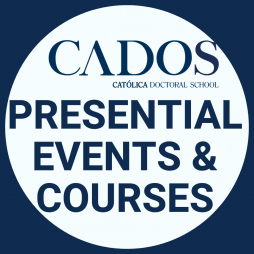The trainning approach of CADOS is structured by a Modular Program of Transversal Skills, designed to accompany the doctoral student from his institutional integration to the dissemination of results and professional insertion. This program is not just a sequence of complementary trainings, but an educational architecture that recognizes that scientific excellence depends on the articulation between technical knowledge, interpersonal skills, ethical responsibility and strategic vision.
Skills include science communication, digital literacy, critical thinking, ethics, project management, creativity and resilience. During the PhD, these skills promote greater autonomy, effective communication with supervisors and peers, methodological and ethical quality, insertion in international networks and sustained motivation. In addition, they strengthen the ability to lead teams, communicate science, adapt to different contexts, and contribute to social and institutional innovation.
By integrating these skills from the beginning and throughout all phases of the PhD, CADOS transforms the research path into a process of personal, scientific and professional growth. This model is aligned with the European competence frameworks for researchers and with the best international practices in doctoral education.
Intensive Module

A week-long presential trainning designed to foster the academic and professional development of early-stage researchers across Universidade Católica Portuguesa and its international partners, offering a multidisciplinary training experience that brings together doctoral students and young researchers from different fields and institutions.

At CADOS, doctoral education goes beyond research specialization — it cultivates a complete researcher. Its Modular Program of Transversal Skills is designed to guide PhD students from their first day of integration to the dissemination of results and professional placement.
More than a set of complementary courses to Católica´s PhDs Programs, it is an educational architecture that connects scientific rigor with interpersonal competence, ethical responsibility, and strategic vision — essential ingredients for excellence and impact.
The individual modules are based on The European Competence Framework for Researchers, known as ResearComp, are structured and offered in two models, 12hours course or 2 hours seminar, include science communication, digital literacy, critical thinking, ethics, project management, creativity and resilience.

CARE - Católica Research Annual Meeting Know more here
CADOS Advisor Training & Development - Know More here
First-Time Researcher’s Academy (in partnership with the T4EU Alliance) know more here
CADOS Writing Retreat - Soon to be announced!
Integral Human Development Annual Conference Know more HERE




